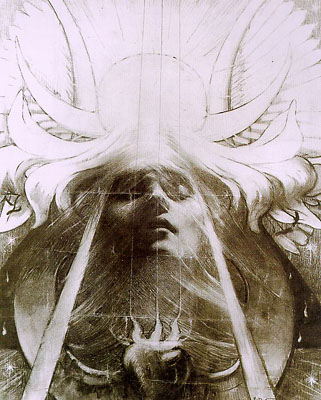
Discuss.
"Watermelons in Easter Hay" (by Frank Zappa) is one of the most thoughtful expressions on guitar ever played...go listen. I'll wait.
Discuss.
"The Godfather" and "The Godfather II" are cinematic masterpieces.
Discuss.
I could keep going, but you get the picture. Now, had you really discussed it, i'm sure you may argue one way or the other that I'm full of it. But is it art? What is art? With regards to the first 2 I mentioned, we'll never know, they're both dead. Although, Zappa has been quoted many times that he writes music for his own enjoyment and that he likes to hear the 'absurdity' of his ideas and that if someone enjoys it, so be it. So thats art?
So how do we come to enjoy the arts (i say the arts, cause you know me, i have to include music)? It all starts with a new way to teach; develope a new language that incorporates visual, digital, anthropological arts (thank your Freedman and Sturh). While it seems obvious, we don't really know what is being learned when we engage in arts activities (thank you Hetland et. al.). The answer? Constructionism! (Kylie is going to be so proud of me).
A simple, yet ingenious 3 tiered approach:
1-Engagement,
2-Personal connection to work,
3-Value of projects to larger community



